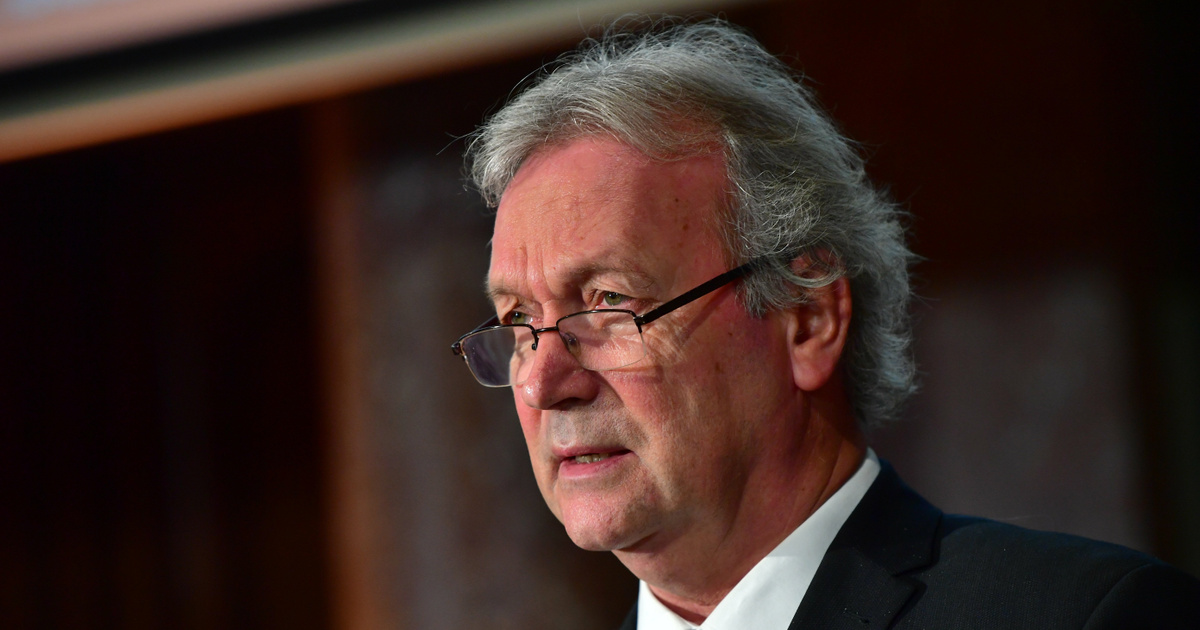Balázs Hankó, State Secretary responsible for Innovation and Higher Education at the Ministry of Culture and Innovation, announced that a program to promote international cooperation in the field of Hungarian research will be launched under the name HU-rizont, for which 8 billion HUF will be available in 2024. Recently.
Balázs Hankó highlighted at the Education Fair that the government also funds research costs at foreign universities in partnership with Hungarian universities from the programme.
“If they try to close us, we will open up to the world, and that is why we launched our international exchange programme, the Pannonian programme, which can be applied for in January, and we will launch the HU-rizont programme, which promotes international cooperation between Hungarian researchers and Hungarian research, this year with the support of 8 billion Hungarian forints.
In addition to the HU Area Programme, 6 billion HUF has been allocated to support international researchers to continue their research in Hungary. In addition, universities that did not receive support in the Horizon Europe program this year will also be supported. Of the 5 billion HUFs available last year, 43 research projects of 12 universities were supported, and this program will continue this year with 5.4 billion HUFs.
It is welcome, but does not result in disqualification
In response to our question about his vision of the international situation and the cohesion of Hungarian research centers, Tamás Freund explained: “It is very discipline-based. There are scientific fields, such as mathematics and brain research, in which we are at the forefront of the world. Our institutes and university departments are regularly communicated by partners Foreigners through Union membership and even offers to manage the Union. I believe that the recognition and integration of the Hungarian scientific community into international scientific circulation is traditionally excellent in almost all fields of science. This was also helped by the fact that Hungarian researchers were able to travel to Western conferences and study tours even before Change the regime, unlike most socialist countries.”
How harmful would exclusion from Horizon Europe be for the people involved? – We asked the President of the Hungarian Academy of Sciences who he sees
This excellent integration is now suffering serious damage, and not only among the universities working to change the model. Almost all local research centers feel this way, as a large number of European partners are reluctant to participate in Hungarian tenders due to exclusion. Moreover, this distinction is unfair, because it affects researchers who are not responsible for choosing how their universities and research centers operate, regardless of whether we consider changing the paradigm good or bad. It also makes no sense because, in the case of the Horizon Program tenders, both the selection of winning projects and then the financial settlement are carried out or controlled directly by the European Commission, so it makes no sense to talk about an increased risk of corruption. In addition, there are usually very few research competitions in corruption cases due to strict evaluation and accountability.
“The program is welcome, but it does not exclude us from the Horizont and Erasmus programs,” Tamas Freund said of HU-rizont. “The government is aware of this too, and it is no coincidence that it is seeking to reach an agreement with Brussels on this issue. I am very confident that it will succeed.” Soon, the HU area will already be a temporary solution in this sense, and the funds allocated for this purpose could be used differently in the coming years to increase the international integration of Hungarian sciences.”
We were also curious what options the MTA chief has to enforce his position. “We consult regularly with Minister János Škák and his colleagues. A few days ago, at the Minister’s suggestion, I was assigned by Prime Minister Viktor Orbán to participate in the work of the National Council for Science Policy for another three years. Here, too, I emphasize that we need an R&D system that creates Harmony between the aspirations of researchers and the country’s social, economic and cultural needs,” emphasized Tamas Freund.
The President of the Academy emphasized: “I support the state Janos Neumann programme, which aims to significantly improve the innovation efficiency of Hungarian research centers, which we hope will be reflected in their position in various international institutional and innovation rankings. The Academy cooperates in further developing an effective and mutually coordinated system of higher education.” and research, development and industrial innovation, which will attract talents from abroad and retain the best local talents at home. This is how the ingenuity and creativity of Hungarian researchers can become one of the engines of the country's development. An equally important condition for achieving this is the correct integration of our universities and research centers into cooperation “International research, flow of knowledge and research technology between the best European, overseas and Far Eastern centers. I am also working on this as President of the Academy.”
(Cover photo: Tamas Freund on November 24, 2021. Photo: Marton Monos/MTI)












































